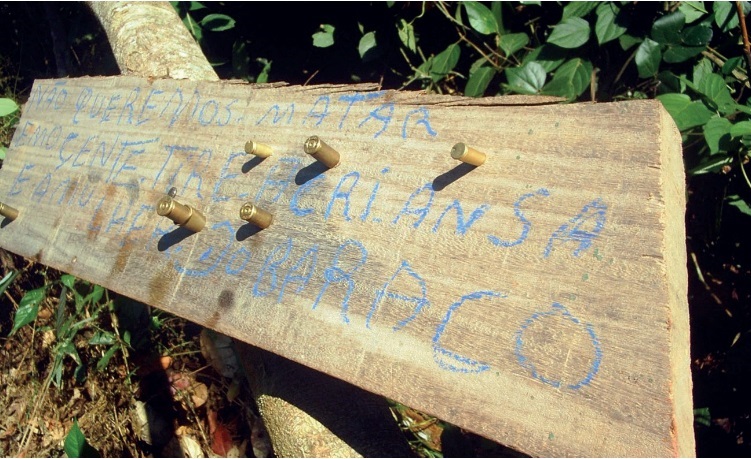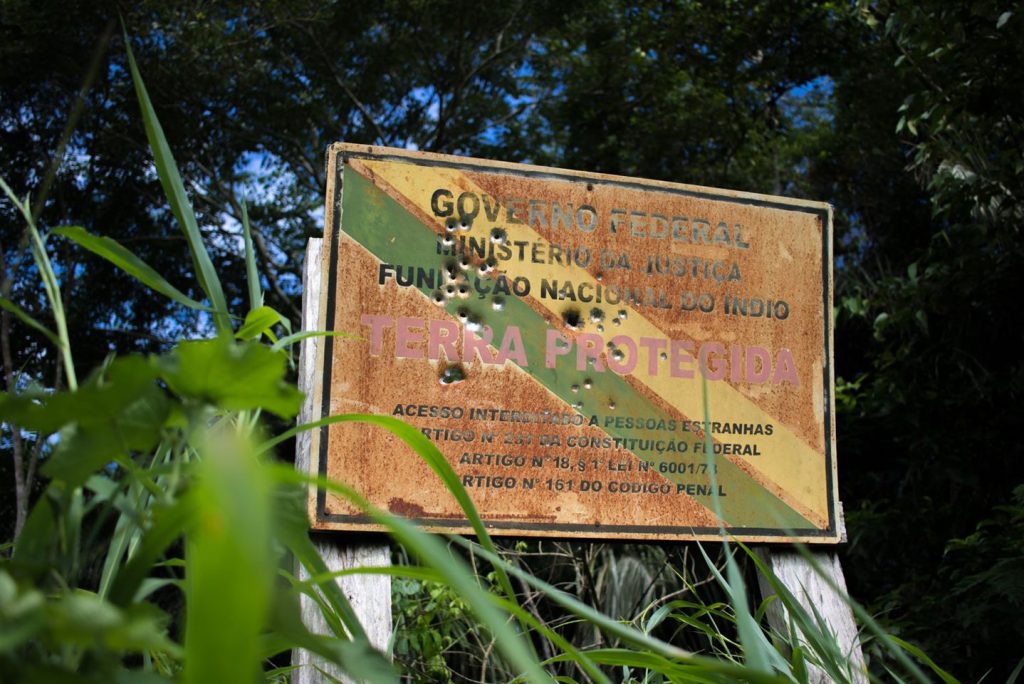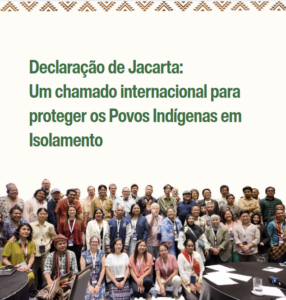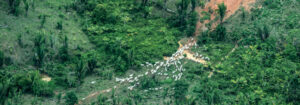Removal of police forces officials responsible for inspection to work without security in five territories in the states of Mato Grosso (MT), Maranhão (MA) and Amazonas (AM)
Agents of the National Foundation for Indigenous Peoples (FUNAI) responsible for inspecting and monitoring isolated indigenous groups in three Amazonian states are working without protection because the ordinances that guaranteed the presence of the National Guard in areas where they work have expired. The problem affects five indigenous lands: Kawahiva do Rio Pardo (MT), Piripkura (MT), Mamoriá (AM), Alto Turiaçu and Araribóia (MA).
Opi (Observatory for the Human Rights of Isolated and Recently Contacted Indigenous Peoples) sent a letter to federal government authorities, the Federal Public Prosecution Office, the Federal Public Defender's Office and the state governors of Mato Grosso, Amazonas and Maranhão, informing them of the situation and calling for action. The document was also sent to the coordinator of the Articulation of Indigenous Peoples of Brazil (Apib), Dinamam Tuxá, so that he can adopt the measures he deems appropriate.
The document recalls that the presence of the National Guard is essential to guarantee the safety of the civil servants who work in the Ethno-environmental Protection Bases (Bapes) and who are responsible for protecting the territories and the lives of the isolated indigenous people who live in them. Without policing, the agents' work becomes riskier and the lives of the indigenous people more vulnerable to attacks by invaders.
The letter mentions the recent murder (on 15 June), in Tocantins, of Sidiney de Oliveira, a firefighter from the Brazilian Environment Institute (Ibama), who was working to protect isolated people in the Bananal Island region. Between 2019 and 2022 there have been three murders of people working to protect isolated indigenous people in the Brazilian Amazon, including that of Bruno Pereira in the Javari Valley.
The five indigenous lands not being protected by the National Guard amounts to more than 1 million hectares of forests where isolated Piripkura, Kawahiva and Awá groups live. On the Kawahiva do Rio Pardo and Piripkura indigenous lands in Mato Grosso, protection is provided by the Madeirinha-Juruena Ethno-environmental Protection Front (FPE). According to data in the study Cartographies of Violence in the Amazon 2023, published by the Brazilian Forum of Public Security, the municipality of Colniza, where the two lands are located, is among the 15 most violent municipalities in the region. In recent years, FPE employees have faced various threats. In 2018, a group of loggers invaded the Kawahiva protection base and one person was killed.
On the Alto Turiaçu and Araribóia indigenous lands in Maranhão, thousands of Ka'apor, Tembé, Awá Guajá and Guajajara indigenous people live in a situation of permanent tension due to the presence of invaders, especially loggers and miners. In recent years, Ka'apor and Guajajara indigenous people who act as guardians of the territories have been murdered. There have been Federal Police operations to combat crime in the Araribóia Indigenous Land but without the presence of the National Guard, the effort could be in vain. The FPE is planning to set up a new base to intensify inspections, but even building work has become dangerous due to the lack of policing.
The Mamoriá indigenous land is home to groups of isolated people whose presence was confirmed in 2021, but the demarcation process has not yet begun and the restriction of use has not yet been established, increasing the vulnerability of the indigenous people. The Madeira-Purus Ethno-environmental Protection Front is responsible for protecting the area and, as well as facing a situation of legal and administrative insecurity, officials have to deal with physical insecurity due to the lack of policing.
"Support from the National Guard in FUNAI's inspection, monitoring and territorial protection actions in indigenous territories has often been used and has proven to be an effective resource in preventing acts of violence and violations against civil servants, human rights defenders, indigenous peoples and their territories," says the OPI document. The non-renewal of ordinances that guarantee the presence of the National Guard poses a direct threat to the security of activities carried out by FUNAI to preserve the lives of indigenous populations and the environment in these regions.
The Opi document was sent to the Ministry of Justice, the Ministry of Indigenous Peoples, FUNAI, the Federal Public Prosecution Office, APIB and the governors of Mato Grosso, Mauro Mendes, Maranhão, Carlos Brandão Júnior, and Amazonas, Wilson Lima.




